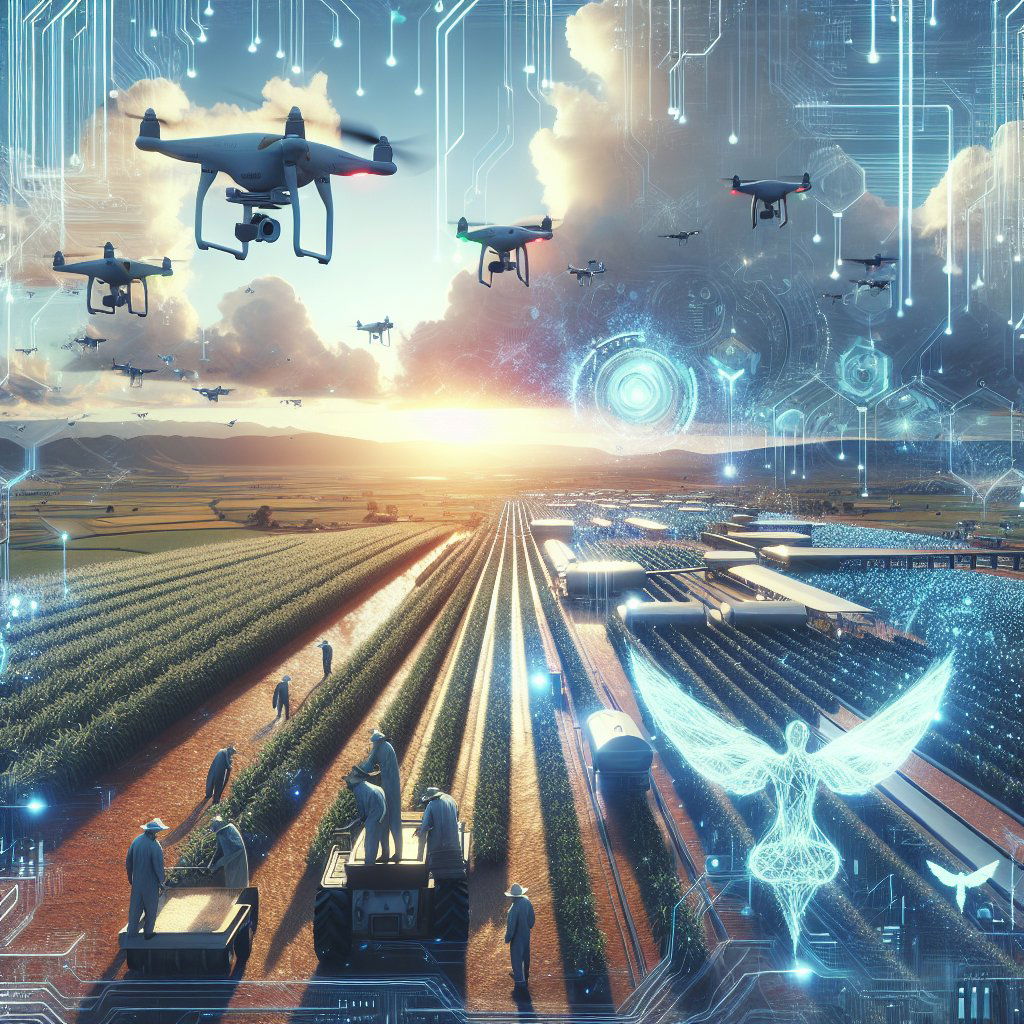Image created by AI
South African Agriculture Poised for AI Revolution: Opportunities and Risks Ahead
The integration of Artificial Intelligence (AI) into the agricultural sector has marked the dawn of a new era of efficiency and productivity for South African farmers. Intellectual Property (IP) specialist Bernadette Versfeld of Webber Wentzel highlights both the transformative potential and the accompanying risks of this technological evolution.
AI technology has made significant inroads in global agriculture. Investments in this field are escalating rapidly, with the United States expecting a growth to $4 billion by 2026 and $4.7 billion by 2028. The World Economic Forum's AI for Agriculture Innovation (AI4AI) initiative in India demonstrates the successful application of AI, particularly in challenging environments, where it has turned around fortunes for thousands of farmers.
In South Africa, the use of AI could radically change farming practices. Drones, for instance, have become crucial in capturing images for crop assessments, which, combined with AI's processing abilities, provide insightful data from diverse sources spanning across seasons and regions. Algorithms assist in making informed decisions about crop watering, nutrient input, and planting choices, contributing to an efficient and sustainable operation with potential positive impacts on ESG ratings and market attractiveness.
However, as Versfeld warns, this new dawn brings its own set of challenges. Data privacy is a major concern, with considerable liability tied to the protection and management of the growing data influx. The risks are not limited to privacy breaches but extend to cybersecurity threats and the potential for costly IP infringement. The intricacy of AI and its generative capabilities can inadvertently lead to legal transgressions regarding protected seeds and breeding techniques.
Confronting these threats requires vigilance and proactive measures. Policies surrounding AI utilization in the workplace must evolve to address these potential liabilities, and firms must seek sound legal counsel to navigate the murky waters of AI-related content and its management.
As South African agriculture stands on the precipice of an AI-induced transformation, the balance between embracing technology and safeguarding against its pitfalls remains delicate. The sector's response to these challenges will determine the success of AI integration into the rich tapestry of South African farming.










